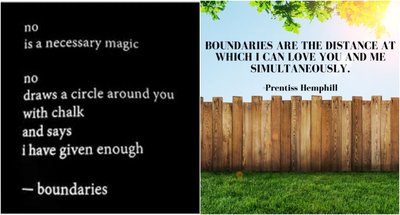This week is Mental Health Awareness Week, a time to reflect on taking steps for self-care and wellbeing. We often think of mental health as the absence of mental distress, but they are actually two separate (although related) ideas.


Focussing on mental health and wellbeing can certainly help people to manage their emotions and reduce distress, but it is also about putting into practice strategies to build positive experiences, coping and pleasure.
The Mental Health Foundation does a fantastic job of discussing and explaining the Five Ways to Wellbeing – Connect, Give, Take Notice, Keep Learning and Be Active. These relate to keeping your mind, body, soul and social connections/relationships healthy, to enhance your mental health.
This holistic model of wellbeing helps people to keep themselves healthy, but also helps their close relationships and connection to their wider community. When considering these strategies, I encourage people to consider one step they can take daily for their wellbeing that can be done in five minutes or less, as we can generally find five minutes in our day to make a new habit or put something into practice.
If you can manage one thing for each of the five ways, that is wonderful, but taking one at a time is an excellent start too, and sometimes more manageable and realistic for people. While this week is a time to really highlight the importance of these five ways, it is also important to consider these as practices that would ideally be put into practice as a lifestyle change that would be ongoing.
It would be fantastic to see people print off the image of the Five Ways and put it on the fridge and discuss within whānau to ensure people collectively put these strategies in action beyond this week, and support each other to do so
In addition to these five ways, one of the things I talk to people regularly about is stress management. Stress is a necessary part of life and is positive in that it provides energy and motivation to do things we need or want to do – when it is at a level that is helpful and within our coping threshold.
However, when demands are more than our resources – on an ongoing basis – this can create situations where we become in a constant state of stress, without time for our bodies and minds to have a break and recharge. And this can lead to distress.
Short bursts of high stress is something we can often manage, but when a sprint turns into a marathon without us being properly physically and mentally prepared, it can lead to chronic high levels of stress.
The challenge is that people become used to being highly stressed, and may not realise they are stressed until their bodies start to show the signs (for example, getting unwell and picking up viruses through a weakened immune system, headaches, digestive issues, muscle strains), their emotions become more intense and feel difficult to manage, or their relationships start to suffer.
So, managing stress on a daily basis will also help you remain physically and mentally well and improve your connections with others. The Five Ways to Wellbeing will support stress management, as will actively doing things to release stress daily through relaxation or exercise.
Building up coping resources will mean you have some ‘stretch’ to manage times when stress increases. These resources also involve maintaining and building your social supports, and making sure you take time for pleasurable activities to balance the demands of life.
If you are able to reduce demands if they feel too high, that is also helpful. One of the ways people can do that is through being assertive in letting people know when they are unable to commit to more in their personal or professional lives and establish boundaries between work and home and in personal relationships.
People sometimes ask what a boundary is. My response would be from a meme I saw online about the magic of saying no and that a boundary marks the line where you can care for yourself while considering the needs for those you care about as well.


Self-care and stress management also mean being compassionate towards yourself and making sure you don’t have unrealistic and unreasonable standards for yourself. Remembering that some days, ‘good enough’ is totally fine.
I am also a huge fan of swapping out ‘always try to do your best’ for ‘I will give it what I have to give today’.
What you have to give on any particular day can vary and if you would like to give more, self-care and stress management, including the Five Ways of Wellbeing, will help do that. It will also help you live the life you want to live, in line with your values and provide pleasure in enabling you to do things that are meaningful and important to you, while maintaining your mental health.
These are practices that are good to consider implementing in your life beyond this week.
By Associate Professor Kirsty Ross.






































